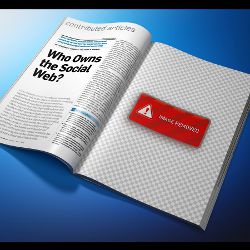User attitudes toward online intellectual property reveal how far social norms have strayed from legal notions of ownership.
Catherine C. Marshall
Author Archives
Why Web Sites Are Lost (and How They’re Sometimes Found)
The Web is in constant flux — new pages and Web sites appear daily, and old pages and sites disappear almost as quickly. One study estimates that about two percent of the Web disappears from its current location every week. To automate recovering lost Web sites, we created a Web-repository crawler named Warrick that restores lost resources from the holdings of four Web repositories.
Digital Memories in an Era of Ubiquitous Computing and Abundant Storage
A lifetime of digital memories is possible but raises many social, as well as technological, questions.
Keeping Encountered Information
Utility, serendipity, and the pleasure of encountering what we save relies on more than search alone when using PIM tools.
Digital Libraries and Mobility
Digital libraries offer the promise of anywhere, anytime access to vast online holdings. But what does this promise really mean? If we draw on studies of digital libraries in use, coupled with our development experience with the XLibris analytic reading software [9] on mobile pen-tablet hardware (shown in the accompanying figure), four potential advantages of […]
Going digital: a look at assumptions underlying digital libraries
What are digital libraries, how should they be designed, how will they be used, and what relationship will they bear to what we now call “libraries”? Although we cannot hope to answer all these crucial questions in this short article, we do hope to encourage, and in some small measure to shape, the dialog among computer scientists, librarians, and other interested parties out of which answers may arise. Our contribution here is to make explicit, and to question, certain assumptions that underlie current digital library efforts. We will argue that current efforts are limited by a largely unexamined and unintended allegiance to an idealized view of what libraries have been, rather than what they actually are or could be. Since these limits come from current ways of thinking about the problem, rather than being inherent in the technology or in social practice, expanding our conception of digital libraries should serve to expand the scope and the utility of development efforts.
Shape the Future of Computing
ACM encourages its members to take a direct hand in shaping the future of the association. There are more ways than ever to get involved.
Get Involved